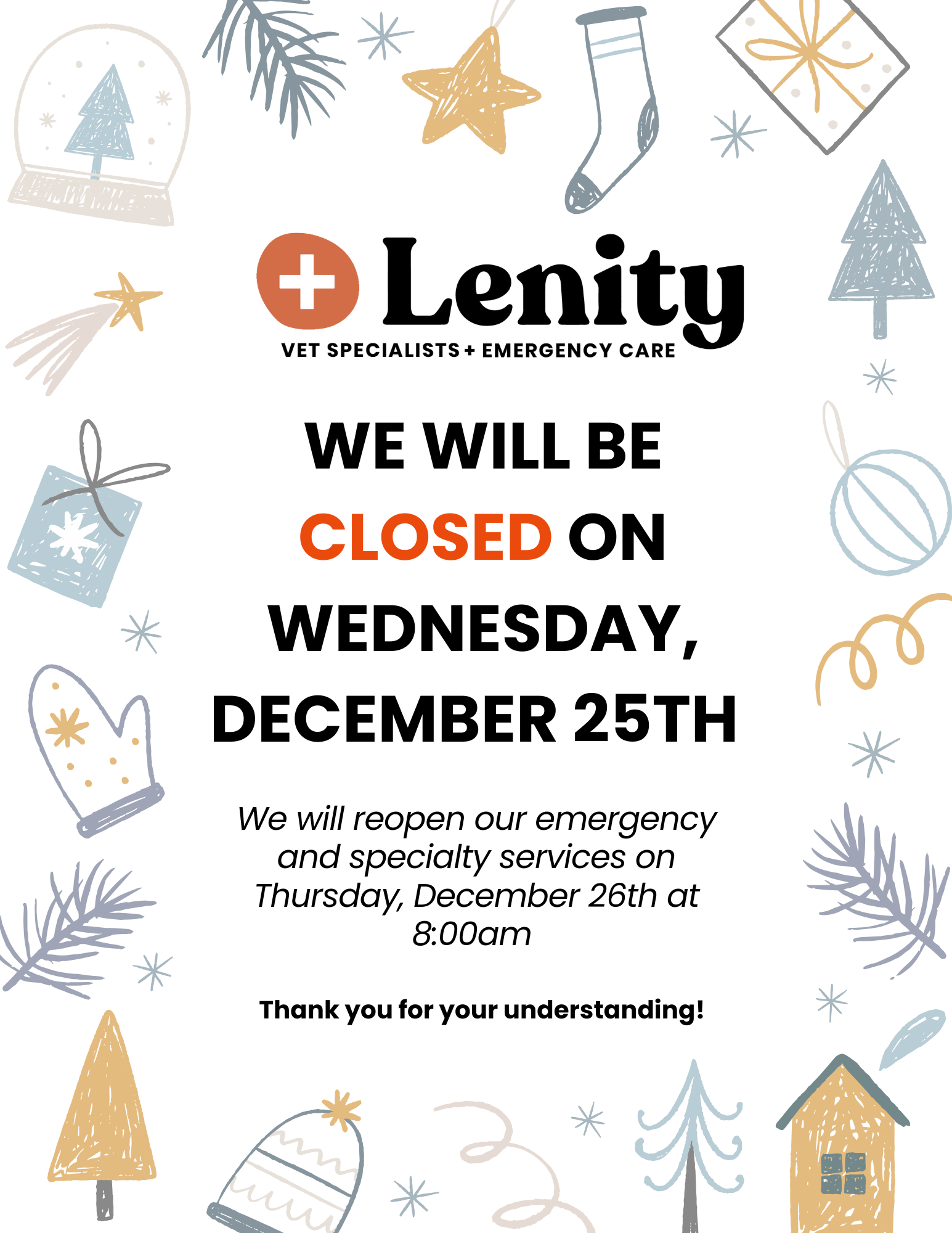Covid-19
We share your concerns regarding the spread of COVID-19. Caring for pets and their owners has always been — and always will be — our primary concern.
To that end, we are still here providing the care and services our patients need. In response to the growing concerns surrounding COVID-19, however, we have taken some steps to further ensure the safety of our clients and staff.
Current precautions
Because Lenity is a medical facility, our office was carefully designed to prevent the spread of infectious disease. The ventilation and airflow systems were even planned to effectively prevent the spread of airborne pathogens throughout the facility. Because our ventilation system is divided up into separate zones, air is not exchanged between our lobby, exam rooms, treatment area, and surgery wing. There are also individual air filters in each exam room.
Our staff members abide by CDC recommendations regarding proper and frequent hand washing and the use of hand sanitizer. Staff members always wash their hands between patients.
The waiting room, exam room, surface, and equipment are thoroughly cleaned and sanitized between patients using products that kill coronaviruses and a multitude of other pathogens. We are also wiping down door handles, computer keyboards and mice, countertops, etc. before and after each visit or use. At this time, we are asking clients to call us from the parking lot upon arrival. This allows us to wipe down the front door and allow them to enter an empty reception area before being escorted into an exam room.
Hand sanitizer and disposable tissues are available to both our clients and our staff. So far, we have not seen any patients, clients, or staff members showing signs of COVID-19. However, we are asking any staff members who feel unwell to stay home. If we have any concerns that our facility has become contaminated, we will alert our clients right away.
Due to the nature of COVID-19 and our strict sanitation standards, visitors to Lenity Vet Specialists + Emergency Care should not have any increased risk of exposure to the virus. You may even be safer at our facility than at another that isn’t as stringent about disinfecting all surfaces at regular intervals throughout the day.
Frequently asked questions
Coronaviruses, known as (CoV) are a large family of viruses that cause a wide range of illnesses. From the common cold to more serious illnesses, including Severe Acute Respiratory Syndrome (SARS-CoV) and Middle East Respiratory Syndrome (MERS-CoV), there are many illnesses that can be caused by various types of coronavirus. COVID-19 is the most recently discovered member of the coronavirus family.
There are many types of coronaviruses that can infect pets, but they rarely infect people. Currently, COVID-19 is believed to have started in bats and evolved through an intermediate animal host before infecting humans. We are not sure if COVID-19 is spread by animals, but at this time, there is no evidence that it is spread by pets.
There’s no evidence your pet can get sick from coronavirus. Here’s why one dog tested positive →
Currently, there is no evidence that suggests cats or dogs can spread the COVID-19 virus. If you do become ill, however, the AVMA does have recommendations regarding caring for your pets while you are sick:
- Have another member of your household care for your pet while you are ill, if possible.
Avoid sharing food with your pet.
Avoid direct contact – including snuggling, petting, and being licked or kissed.
If you have to interact with your dog or cat while you are sick, wash your hands before and after each interaction. Wear a facemask when caring for your pet to help prevent the mechanical transmission of the virus to other people via your pet. For example, if you are sick and pet your dog, someone else could catch the virus after they, too, pet your dog. Even though your dog is unlikely to get sick from the virus, they could pass it along via their fur.
For additional information, please visit COVID-19 Coronavirus & Pets.
Currently, there is no vaccine against COVID-19 for pets. We will update you if one becomes available.
Following the guidelines set forth by the World Health Organization is the best way to protect yourself, your family, and your pets. There is no need to panic, but you should take a few precautions:
Wash your hands with soap and water frequently. (Check out this video to make sure you are washing your hands properly. When this option isn’t available, use a hand sanitizer that contains at least 60% alcohol.
Don’t touch your nose, mouth, or eyes with unwashed hands.
Avoid close contact with other people, especially those who are sick.
Stay home as much as possible, especially if you are experiencing symptoms.
If possible, cover your sneeze or cough with a tissue, then throw the tissue in the trash immediately. If you do not have a tissue, cough or sneeze into your elbow rather than your hand.
Clean and disinfect frequently touched surfaces and objects often.
Vaccinate your pet as recommended by your veterinarian.
We are living in challenging times and facing unprecedented situations. At North Peninsula Veterinary Specialty Group, we are doing everything we can to continue offering our complete range of services while protecting our patients, clients, and staff. If you have any questions or concerns regarding how we are handling COVID-19 or would like to schedule an appointment for your pet, please do not hesitate to contact our team. We thank you for your understanding and patience during this time and wish you and your pet good health.

